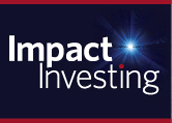Accredited investors interested in solar energy projects will soon be able to tap into the fast-growing market through a new web-based platform from Wiser Capital LLC of Santa Barbara, Calif. Additionally, legislation recently introduced in Congress could make it easier for a broader audience to also directly invest in solar and other clean energy projects.
The market value of U.S. solar installations reached $11.5 billion in 2012, up from $8.6 billion in 2011 and $3.6 billion in 2009, according to GTM Research and the Solar Energy Industries Association (SEIA). Wiser focuses on mid-scale commercial photovoltaic (PV) projects––those valued at $250,000 to $3 million with systems in the 100 kilowatt to 1 megawatt range.
“It is one of the largest sectors and the most underserved,” says Nathan Homan, Wiser’s managing partner. He notes that mid-scale commercial PV has had a difficult time getting financing because institutional money flows into larger projects.
Wiser matches and works closely with three parties: host facilities (businesses that lease out their roof tops for solar panels and use the energy that’s generated); systems integrators (solar project developers) and energy investors. The firm piloted its program this past year. It plans to roll out its host facility and systems integrator modules this month and its investor module by early fall.
Due to SEC restrictions, Wiser may not describe specific investment opportunities or publicly solicit investors. Accredited investors and family offices who want to learn more about if and how they may participate in commercial PV development can establish a relationship with Wiser and explore project parameters including returns, terms and type of investment vehicles (equity, debt or tax shelter), says Homan.
"We are always looking to work with RIAs and financial advisors to understand and educate their clients," he says.
How It Works
Wiser creates, actively participates in, and manages LLCs set up to develop, own and operate sustainable energy assets. Accredited investors can respond to private placement memorandums and choose to purchase membership interests in these LLCs as the projects are being developed. Currently, membership must be purchased during development to preserve tax benefits.
The company assigns project rating scores based on the creditworthiness of a host facility, operating and maintenance costs, factors affecting the project development cycle and other criteria. It analyzes whether host facilities seem solvent enough to survive the term of a contract—often 20 years. It also helps negotiate power in a way that makes financial sense for the host facilities, says Homan, who describes the projects as “low maintenance and predictable.”
Wiser finds that projects with lower purchase price agreements (PPAs)—a determinant of cash flow—and higher rating scores can produce yields of about 8 to 10 percent, while projects with a richer PPA on a lower rating score might drive 12 to 15 percent returns, says Homan.

